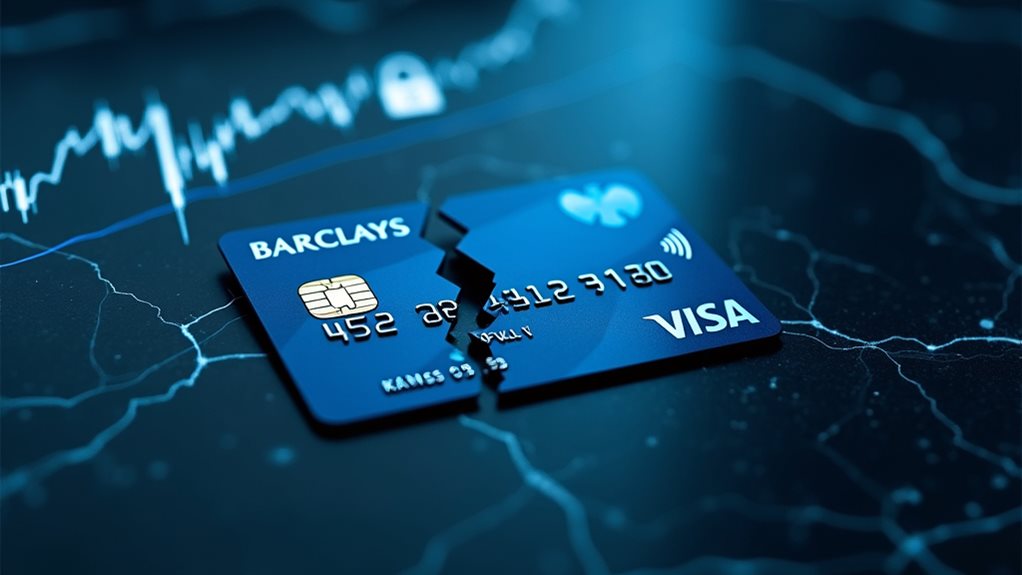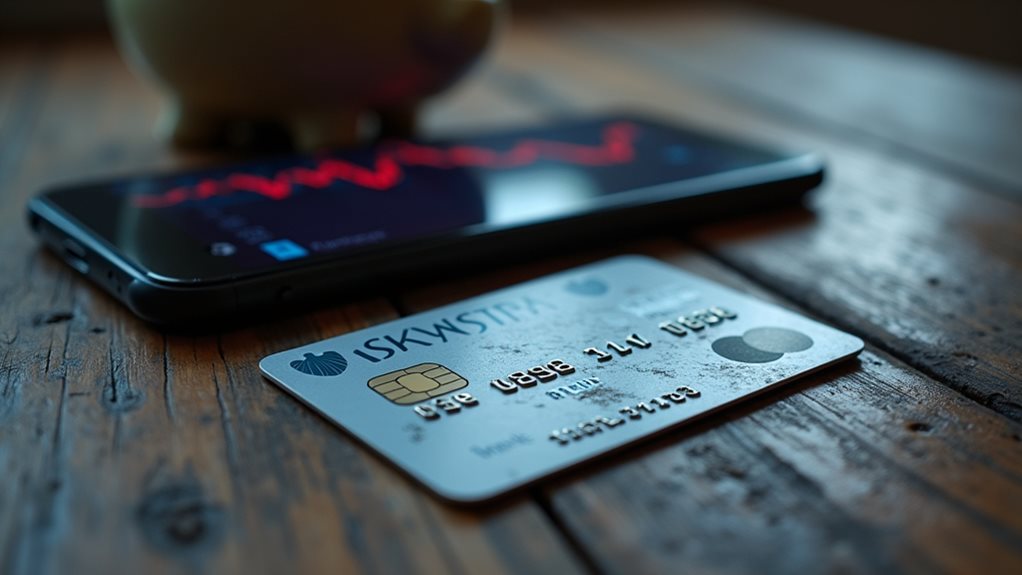Barclays is pulling the plug on crypto credit card purchases starting June 27, 2025, because apparently borrowing money to gamble on Bitcoin isn’t great financial planning. The bank joins other UK heavyweights like Santander and Lloyds in blocking these transactions, citing market volatility and rampant scam risks. Customers can still use debit cards and bank transfers—you know, their actual money instead of borrowed cash. The move reflects growing regulatory pressure after multiple crypto firms collapsed in 2022, signaling broader industry changes ahead.

When Barclays decided to slam the door on crypto purchases with credit cards, they weren’t exactly subtle about it. Starting June 27, 2025, all Barclaycards will block cryptocurrency transactions. Period. The bank cited the usual suspects: market volatility and scam risks.
This isn’t some groundbreaking revelation. Crypto is volatile? Shocking. Scams exist in the space? Who could have predicted that? But Barclays isn’t wrong, and they’re certainly not alone in this move.
The bank’s logic is straightforward enough. They don’t want customers racking up debt on credit cards to buy digital assets that could tank overnight. Fair point. There’s something unsettling about borrowing money to gamble on Bitcoin’s next mood swing.
Customers affected by this ban won’t be completely locked out of the crypto world. They can still use debit cards and bank transfers for their digital asset adventures. With 28% of Americans now owning crypto assets, these alternative payment methods remain crucial. The distinction matters here. Using your own money versus borrowing someone else’s money to chase speculative gains.
The line between spending your cash and gambling with borrowed money just got a lot clearer.
Barclays joins a growing club of UK banks implementing similar restrictions. Santander, NatWest, Halifax, and Lloyds have all rolled out their own versions of crypto credit card bans. It’s like a coordinated dance, except everyone’s moving away from the same thing.
The technical implementation sounds thorough. Barclays will update their systems to recognize and block crypto-related transactions, including those sneaky indirect purchases through crypto-enabled apps. No loopholes, apparently.
From a risk management perspective, this makes sense. Banks don’t want to facilitate unsecured borrowing for investments that could disappear faster than a magician’s rabbit. The crypto market’s reputation for extreme price swings doesn’t exactly inspire confidence in traditional financial institutions.
The move reflects broader industry caution around cryptocurrency regulation and consumer protection. Banks are drawing clear lines between what they consider acceptable credit card usage and what crosses into potentially dangerous territory. The timing comes after the collapse of multiple crypto firms in 2022 shook confidence across the financial sector. The Financial Conduct Authority has been particularly vocal about the risks of using borrowed money for cryptocurrency investments, adding regulatory pressure to the banks’ own risk assessments.
Whether this protects customers or simply pushes crypto transactions elsewhere remains to be seen. But Barclays has made their position crystal clear: if you want to buy crypto, use your own money, not theirs.









